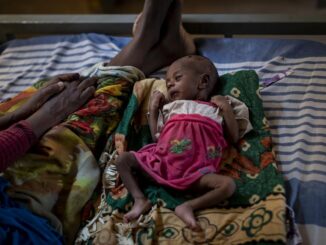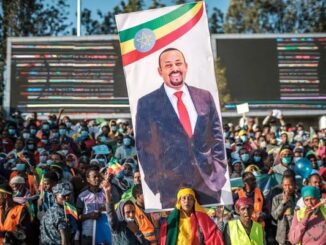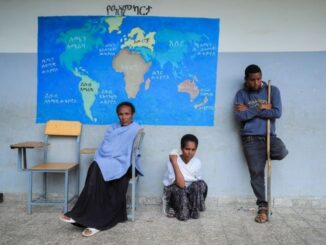
Church leaders and social workers in Ethiopia are concerned over millions of children unable to attend school in the war-torn Tigray region despite a cessation of violence between the Ethiopian federal government and Tigrayan forces.
Cardinal Berhaneyesus Souraphiel of Addis Ababa has expressed concern about the closure of schools because we believe education is crucial to change the mentality and also to bring solidarity among the different ethnic and tribal groups of Ethiopia, he said. The Catholic Church in Ethiopia aims to reach 430 schools run by the diocesan clergy and religious congregations. Also included is the new Catholic University — ECUSTA — which the Ethiopian bishops are building on the outskirts of Addis Ababa, in collaboration with Brothers of the Christian Schools.
Over 22,500 teachers in the area have not received payment in over two years, struggling to provide for their families. Moreover, according to Ethiopia’s education ministry, 48,500 teachers require psychological and mental health care as they struggle to overcome the violence they experienced.
Millions of children have quit school, initially as a result of the coronavirus outbreak and subsequently as a result of the conflict. Save the Children in April reported that 2.3 million students in northern Ethiopia had not started going back to school. In Tigray’s major cities, certain institutions, including kindergartens and nursery schools, were anticipated to reopen between late April and early May of this year, followed by primary schools. However, this has not happened. The US-based charity explains that without education it is very difficult to sustain a peace process.
According to a 2022 UN report, 1.39 million children in the Tigray region are out of school because of Ethiopia’s civil war and that war between Ethiopia’s federal government and Tigrayan forces left many children orphaned or separated from their families. Experts say the impact of such traumatic emotional wounds lingers for the children.
ALSO READ: Warring forces in Ethiopia’s Tigray war agree to stop fighting
The Human Rights Watch group maintain that all combatants in Tigray have been responsible for the attacks against, looting of, and occupation of schools since the conflict began because schools became vulnerable to attack when they were occupied by military troops. In Tigray, assaults on schools have included everything from indiscriminate bombardment to plunder and damage. Urban areas in Tigray were shelled by the Ethiopian military without authorization, according to Human Rights Watch.
UNICEF Ethiopia said that together with the regional education bureau it is providing informal education services to countless children who have been deprived of school for more than three years in war-torn areas.




